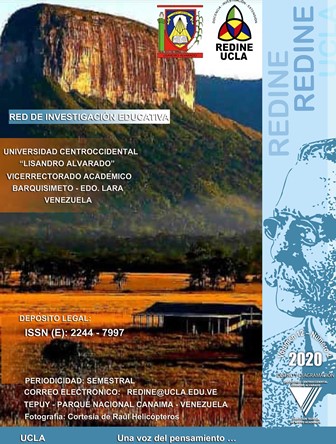critical investigation: transversal reason, discursive ethics and democracy
Abstract
The intent of the essay is to reflect on transversal reason, discursive ethics and democracy as constitutive aspects of being and doing critical research in the social sciences. It is assumed that thought and action is an indissoluble binomial in the search for real changes and transformations, constantly fed back by reflection. It considers the reason as transversal, because it shelters modes of operating by transits. This refers to the creation of transitive connections between different complexes, such as reality. Unique and plural thought come together, generating "plural unity" and weak thought. Discursive ethics, as a set of theories proposed for community praxis, values argumentation and recognizes the legitimacy of the other. This is the foundation of a solid democracy built by everyone from common spaces.
In addition to this, investigating to change requires introducing changes that demand, speaking from the truth, believing, listening to ourselves, reflecting, expressing our reason; arguing.
Key words: Critical investigation
Downloads
References
Fonseca; L. (1997). Epistemología de la Investigación Crítica. Fondo Editorial Tropykus. Caracas, Venezuela.
Habermas, J. (2010). La inclusión del otro. Estudios de teoría política. Editorial Paidós. Madrid, España.
Habermas, J. (2001). Teoría de la Acción Comunicativa I. Racionalidad de la Acción y Racionalización Social. Edit. Taurus. España.
Maturana, H. (2003). Amor y Juego. Fundamentos Olvidados de lo Humano. Editorial Dolmes. Chile.
Maturana, H. (2002). El sentido de lo humano. Santiago de Chile: Dolmen Ediciones.
Murcia, F. (2001). Investigar para cambiar. Tercera edición. Cooperativa editorial Mesa Redonda Magisterio.
Senge P., Maturana H., Dávila X. (2011). Organizaciones socio-ético sustentable: Un camino hacia un futuro distinto. Visiones Telefónica. Paper Nº II, año 2011. Disponible en: https://es.slideshare.net/navyhuel/senge-maturana-davilaorganizacionessocioeticosustentablesuncaminohaciaunfuturodistintoesp
Ursua N., Ayestarán I. y González J. (2004). Filosofía crítica de las ciencias humanas y sociales. Ediciones Coyoacán. México.
Vattimo, G. (2016). “El pensamiento débil nos hace personas más fuertes” Entrevista a Gianni Vattimo por Amiguet, Lluís. La Vanguardia. (13/06/2016). Disponible en: https://www.lavanguardia.com/lacontra/20160613/402464062440/el-pensamiento-debil-nos-hace-personas-mas-fuertes.html
Published
How to Cite
Issue
Section
Copyright from the year of publication
This work is licensed under a:
Creative Commons Reconocimiento-NoComercial-CompartirIgual 4.0 Internacional (CC BY-NC-SA 4.0)
The opinions expressed by the authors do not necessarily reflect the views of the publication's editor or UCLA. Total or partial reproduction of the texts published here is authorized, provided that the complete source and the electronic address of this journal are cited. Authors have the right to use their articles for any purpose, provided it is done on a non-profit basis. Authors may publish the final approved version of their work online or in any other medium after it has been published in this journal.




